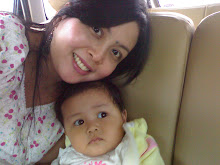| By Rachel Goodchild Fun activities that build the skills your child needs to learn to read and write. Kids who start school ready to read and write have built up a whole lot of skills through everyday life – not necessarily by being formally taught their letters. The most important way to help your child in reading and writing is to model both these things to your child. Read to him from birth, read with him for all sorts of reasons, have lots of books easily accessible and allow him to see you reading. If he thinks of himself as a reader and knows that books are fun, this is a great head start. Here are a few ideas to get your child excited about reading and the wonder of books. 1.Copy Cat If someone makes something in a story, or does some cooking, try to do the same thing together too. You can find instructions to make most things on the internet if you are unsure of ingredients. Children learn and remember by doing. This will also teach them that reading can help us do fun things. 2. Make Books Children learn so many things by having books made about them and the people they know. Making them with your child together is best, but if your child hates sitting down, making them by yourself can still benefit your child – they get to enjoy a great book. You can cover family trips, your child as a baby, or a labeled photo book to help them learn about their body. 3. Our neighborhood Go for a walk together around the neighborhood. Or try a shopping mall. Play I Spy with them as you walk or a guessing game such as… find a place where we could by a hot dog, or if I had ten dollars, what could I buy in this store? This helps children to make sense of their world, extend their vocabulary and think about relationships between themselves and everyday surroundings. This helps increase their understanding when they come to read and write. 4. A day in the life of you We do this every night with our daughter. We call them Princess Susie stories, but really they are just about our day together. Retelling the day’s events helps your child develop some excellent reading skills. The skills of sequencing events, prediction, retelling and remembering events are all developed through this activity. 5. It is my turn! Play card games or board games. Read the rules together to work out how to play the game. When you know it well, have your child teach someone else the game without using the written instructions. Playing games helps your child to focus on objects, increases concentration and increases fine motor skills moving a counter around a board. 6. Color it in Coloring in is not the most creative activity, and for a while many teachers moved away from using it as they felt it limited their children’s creativity. However by encouraging children to color in, and demonstrating how to stay within the lines, you can help your child to develop excellent fine motor skills. When they come to write, they will find it easier to keep their letters neat. |
READY TO READ
Labels: little treasures, mom and baby info
Subscribe to:
Post Comments (Atom)

No comments:
Post a Comment